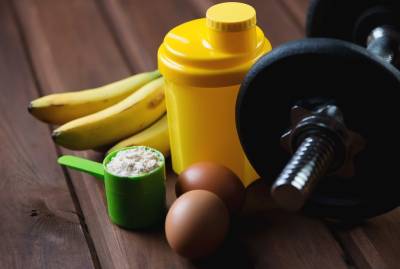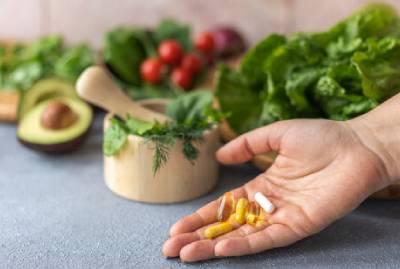
Foods for Mass Gain
Introduction to Foods for Mass Gain
Gaining muscle mass is a common goal for many people, whether it's to improve their physical appearance, increase their strength, or improve their athletic performance. Proper nutrition is essential to support this goal. In this article, we'll explore in detail the best foods for bulking up, how to incorporate them into your diet, and other tips to maximize your muscle gains.
Why Foods for Mass Gaining Are Important
Bulking foods are crucial because they provide the nutrients needed to support muscle growth. They provide protein for tissue repair, carbohydrates for energy, and healthy fats for hormone production. By consuming the right foods, you can maximize your efforts in the gym and see faster results.
The best foods for gaining mass
Proteins
Protein is the building block of muscle. Here are some of the best protein foods for bulking:
- Chicken : Chicken is an excellent source of lean protein that is easy to prepare and incorporate into many dishes.
- Fish : Fish like salmon and tuna are high in protein and omega-3 fatty acids, which are good for heart health.
- Eggs : Eggs are a complete source of protein, containing all the essential amino acids needed for muscle growth.
- Dairy Products : Milk, Greek yogurt and cottage cheese are excellent sources of protein and calcium.
- Legumes : Beans, lentils and chickpeas are high in protein and fiber, ideal for a vegetarian or vegan diet.
Carbohydrates
Carbohydrates provide the energy needed for intense workouts and to support muscle growth. Here are some carbohydrate-rich foods for bulking:
- Brown Rice : Brown rice is a source of complex carbohydrates, providing long-lasting energy for your workouts.
- Oats : Oats are high in fiber and complex carbohydrates, perfect for an energy-boosting breakfast.
- Sweet Potatoes : Sweet potatoes are rich in carbohydrates and vitamins, excellent for muscle recovery.
- Whole grain pasta : Whole grain pasta is a source of complex carbohydrates that can help replenish glycogen stores after training.
- Quinoa : Quinoa is a complete protein and an excellent source of carbohydrates, ideal for post-workout meals.
Healthy Fats
Healthy fats are essential for hormone production and vitamin absorption. Here are some foods rich in healthy fats for bulking:
- Avocado : Avocado is rich in monounsaturated fats and fiber, which are excellent for cardiovascular health.
- Nuts and Seeds : Almonds, cashews, chia and flax seeds are high in healthy fats and protein.
- Oils : Olive, coconut and flaxseed oils are good sources of healthy fats.
- Oily fish : Oily fish like salmon and mackerel are rich in omega-3 fatty acids.
- Peanut Butter : Peanut butter is high in healthy fats and protein, perfect for snacking.
How to Incorporate These Foods into Your Diet
Meal Planning
To optimize your mass gain, it is important to plan your meals and snacks to include a variety of mass gaining foods. Here are some sample meals:
- Breakfast : Vegetable omelette with wholemeal bread and a smoothie made with milk, banana and oats.
- Lunch : Grilled chicken with brown rice and steamed vegetables.
- Dinner : Baked salmon with sweet potatoes and avocado salad.
- Snacks : Greek yogurt with fruit and nuts, or homemade protein bars.
Meal frequency
Eating several small meals throughout the day can help maintain a consistent supply of nutrients and support muscle growth. Try to eat every 3 to 4 hours to keep your metabolism active and provide your body with the nutrients it needs.
Other tips for effective mass gain
Hydration
Drinking enough water is crucial for performance and recovery. Water helps transport nutrients to the muscles and remove metabolic waste. Aim to drink at least 2-3 liters of water per day, and more if you have intense workouts.
Rest and recovery
Rest is just as important as training and nutrition for bulking. Muscles repair and grow during rest periods. Make sure you get enough sleep each night and take rest days to avoid overtraining.
Tracking Progress
Track your progress in terms of weight, body measurements and performance in the gym. This will help you adjust your diet and training program according to your goals and progress.
Consult a professional
If you're new to bulking up or have specific nutritional needs, it may be helpful to consult a nutritionist or fitness coach. They can provide personalized advice and help you develop a plan that's right for your goals.
Conclusion
In conclusion, bulking foods play a crucial role in muscle growth and athletic performance. By incorporating a variety of foods rich in protein, carbohydrates, and healthy fats, you can effectively support your bulking goals. Remember to plan your meals, stay hydrated, get enough rest, and track your progress to maximize your results. With the right diet and proper training, you can achieve your bulking goals effectively and sustainably.



Leave a comment
This site is protected by hCaptcha and the hCaptcha Privacy Policy and Terms of Service apply.